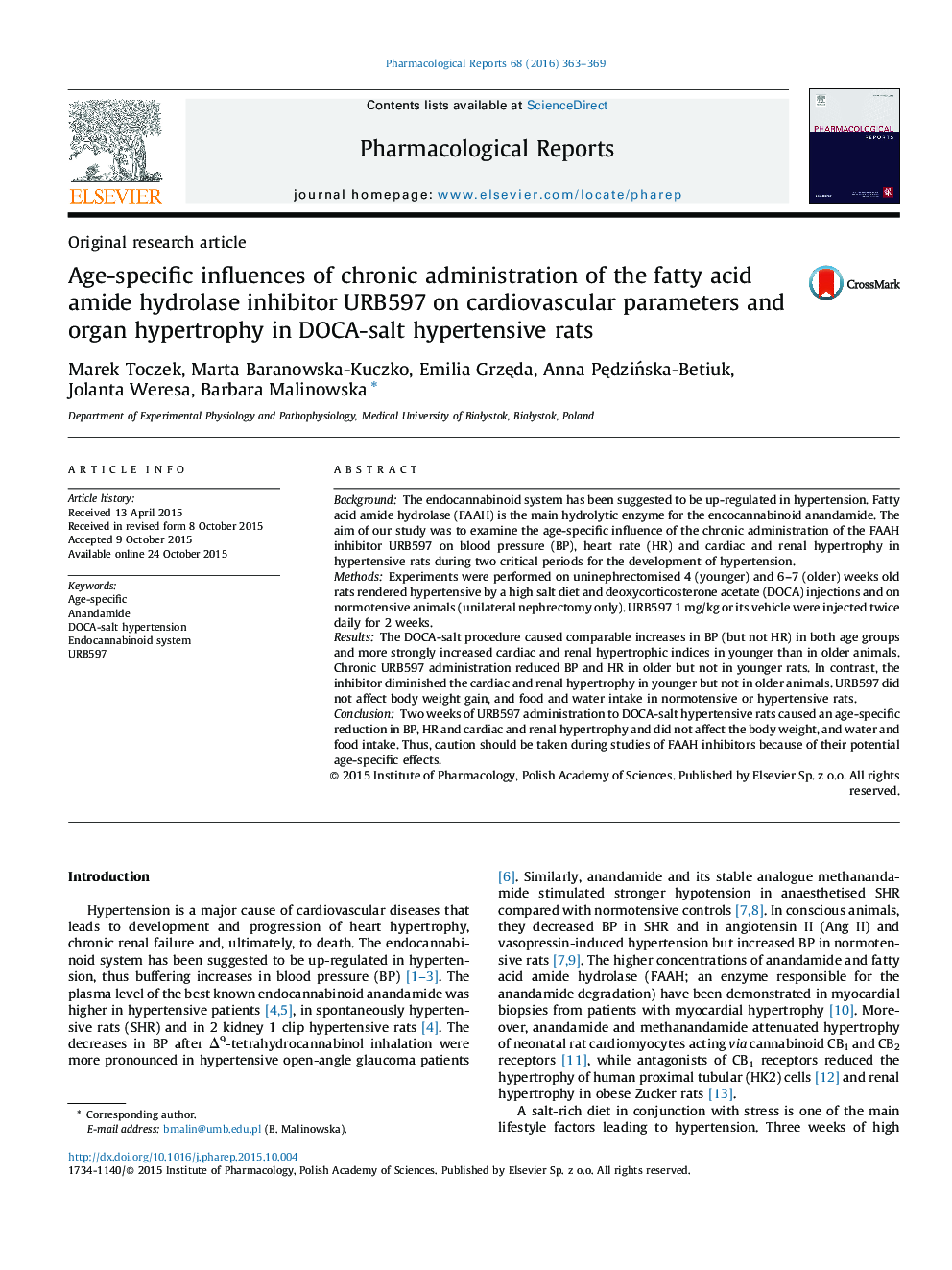| Article ID | Journal | Published Year | Pages | File Type |
|---|---|---|---|---|
| 2011644 | Pharmacological Reports | 2016 | 7 Pages |
BackgroundThe endocannabinoid system has been suggested to be up-regulated in hypertension. Fatty acid amide hydrolase (FAAH) is the main hydrolytic enzyme for the encocannabinoid anandamide. The aim of our study was to examine the age-specific influence of the chronic administration of the FAAH inhibitor URB597 on blood pressure (BP), heart rate (HR) and cardiac and renal hypertrophy in hypertensive rats during two critical periods for the development of hypertension.MethodsExperiments were performed on uninephrectomised 4 (younger) and 6–7 (older) weeks old rats rendered hypertensive by a high salt diet and deoxycorticosterone acetate (DOCA) injections and on normotensive animals (unilateral nephrectomy only). URB597 1 mg/kg or its vehicle were injected twice daily for 2 weeks.ResultsThe DOCA-salt procedure caused comparable increases in BP (but not HR) in both age groups and more strongly increased cardiac and renal hypertrophic indices in younger than in older animals. Chronic URB597 administration reduced BP and HR in older but not in younger rats. In contrast, the inhibitor diminished the cardiac and renal hypertrophy in younger but not in older animals. URB597 did not affect body weight gain, and food and water intake in normotensive or hypertensive rats.ConclusionTwo weeks of URB597 administration to DOCA-salt hypertensive rats caused an age-specific reduction in BP, HR and cardiac and renal hypertrophy and did not affect the body weight, and water and food intake. Thus, caution should be taken during studies of FAAH inhibitors because of their potential age-specific effects.
